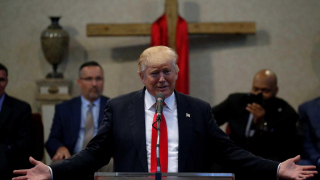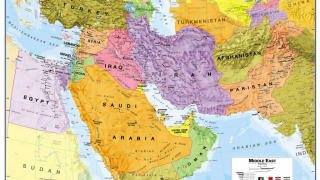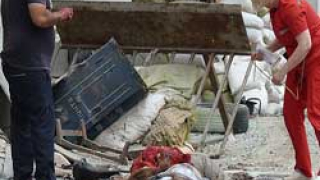The Modern Need to Reform or Revolutionize the Concept of an Intelligence Service
06.02.2019
Dedicated to Kim Philby and Markus Wolf
To some, the world of contemporary intelligence-gathering is one of blatant bravado and melodrama. And yet, more quietly, the actual gathering of intelligence both domestically and abroad is the cornerstone of keeping a country or nation-state within a realm of stability and preserving the peace and tranquility of the population at large. In the modern world, we have seen since the dissolution of the Soviet Union mostly utter chaos and maniacal egotism among the major intelligence services, all continually vying for a position of dominant ascendancy. Not since the time of the French Revolution has one seen such chaos and ironically, naïve arrogance among the various intelligence services throughout the world, particularly Russia and the West, including the United States, which have shown their incompetence in creating a diplomatic process, curtailing or destroying terrorist groups attempting to undermine any course leading to actual, legitimate needs for revolution, or those who seek with fascist intent to overtake a nation-state via a coup d'etat or other violent means.
In one of his most overlooked sections of ON WAR, Baron Carl Von Clausewitz (1780-1831) analyzed how to utilize intelligence information in a time of war, but could also be applied to some extent during a time of stability or an interlude from war. Such a discernment could apply in the modern sense of the term, a “Cold War” period: “In a few words, most reports are false, and the timidity of men acts as a multiplier of lies and untruths," Clausewitz stated. "As a general rule, every one is more inclined to lend credence to the bad than the good… Firm in reliance on his own better convictions, the Chief must stand like a rock against which the sea breaks its fury in vain”.
My humble theory would be for a modern intelligence service to predominately focus on the needs of the people within the particular country it represents rather than on the pressure imposed upon it by a biased leadership whose only interest is preservation of power and accumulation of economic advancement, as evidenced by some Western powers as well as in Russia and some former Soviet Republics. The most proficient and longest enduring intelligence services are those whose leadership basically remains in faceless anonymity, whereby the head of domestic and foreign information-gathering is not known to the public or media.
Interestingly, one of the main weakness of contemporary Western intelligence services, is a deficit shared to an extent, but not on such a destructive level in some cases, by The Foreign Intelligence Service of the Russian Federation. It is the The Main Directorate of the General Staff of the Armed Forces of the Russian Federation that has kept the Russian people secure in these dangerous and ominous times. However the nature of the United States and the Russian foreign intelligence services have weakness that can be seen and understood by a more objective outside observer. Both sides concentrate too much on how the world media perceives them, allowing their ‘fragile’ egos to get in their way when it comes to actually collecting intelligence information by hard work. By this I mean the leadership of many intelligence services are too involved in the glitz and glamour and so-called prestige of being publicly recognized for work that was actually never properly done or done in a slipshod manner.
For instance. what can be as equally important as a domestic or foreign intelligence procedure against a known enemy or adversary is the grinding footwork by the completely unknown intelligence agent in a time of civil war, or when a Syrian Arab Army (SAA) spy released footage from the headquarters of the Turkish-backed National Liberation Front (NLF) with a view of a propaganda coup, yet still remaining totally anonymous.
Such exemplary work is important because it sends a terrifying message to an enemy that they are not safe even within their own compound. An attempted or actual ‘successful’ assassination of an enemy agent or taking revenge against a traitorous agent does not always curtail the wrath of a competing intelligence agency bent on destroying its adversary in the first place. Nor is torture necessarily ultimately successful in acquiring information from a captured agent. There are other psychological procedures that can be implemented but will not be discussed in this paper, as that would undermine the art of intelligence gathering, as it becomes modernized in the era we live in.
Therefore, in my view, such intelligence procedures should never be written down on paper, they should simply be discussed among the intelligence leadership. The complexity of recruiting agents is always of a very palpable nature. Such a creation of intelligence networks should be viewed without a dogmatic rule concerning the recruitment of agents.
As Kim Philby, the British master of espionage and KGB double agent for the Soviet Union, brilliantly conceded: "There were also two Frenchmen, booked for some special Mission which was not divulged to us. One was Right, the other Left: but both had an admirable hatred of Vichy. They turned out to be my star pupils… I mention this because they were almost the only trainees who took the slightest
interest in politics or political propaganda. The others were probably better SOE material: brave but pliable, content to do what they were told without worrying about the future shape of Europe."
Philby was known to be aware of flexibility when working with all types of people, but he also excelled at interpreting minute nuances of psychological observation among those he worked with, so this kind of subtle awareness and even manipulation of agents in the best sense of the word is lacking in many modern , meaning current, intelligence services.
One of the main issues in intelligence today is adapting and being more streamlined in responsivity in conveying and placing intelligence information with the correct agencies as quickly and efficiently as possible. The ways of intelligence networks in Europe, for example, are cumbersome and eventually caused the deaths of innocent civilians while curtailing a terrorist attack, frequently seen in France, Egypt, and Lebanon. In the journal mediterranean affairs (m|a) which notes the struggle of intelligence services to maintain continuity in their exchange of intelligence gathering regarding possible terrorist attacks, Resident Fellow at European Space Policy Institute (ESPI), Alessandra Vernile writes: "The evolving terroristic threat led to a different perception of it. Since the Paris attacks in November 2015, the EU Member States started a phase of cooperation among them aiming at sharing information." [1]
Vernille continues: "Since 2002, the European Union has had an intelligence analysis centre, the EU IntCen. Their work is based on classified information sent to the Centre by national intelligence agencies. More recently, EU has started considering working on a range of policies to tackle new challenges. Among these proposed new initiatives: preparation of EU databases on security, borders and migration management that need to be interoperable. But issues related to data-sharing were spotted. [2] One of these has been the unwillingness of member states to share and exchange information on security in the EU framework. Bilateral and multilateral agreements between states (involving EU and non-EU countries) have been more successful. While Vernile would lament, “Few attempts to renew the intelligence services have been done.”, I think she does not consider deeply enough the historical situation that is part and parcel of the European intelligence community in general -- they are nation-states or countries with mixed economies and varying ideological commitments creating such contradictions making it difficult for them to work amicably together. Then there is the author’s own social constitution -- that of an academic rather than someone who has worked in the intelligence field at all, although even such a supposition or speculation on my part could be incorrect.
In the United States there has been much consternation among various intelligence agencies because of the lack of support from the USA's Trump regime. A number of nefarious individuals seem able to manipulate a naïve and narcissistic American President with his delusions of grandeur. Similar vulnerability was also detected and written about by both ancient and modern historians regarding such dubious characters as Nero and Mussolini, who never questioned themselves until they finally were liquidated.
And so the dangerous, malevolent unholy trinity of Donald Trump, along with his criminally bellicose associates Bolton and Pompeo, are anxious to go to war with Iran. In full red-faced apoplectic arrogance, Trump denounced the leadership of the USA's own intelligence services for having objectively stated that Iran currently does not pose a threat to the United States. “The tweets came a day after a new American intelligence assessment said Iran is not – for now, at least – taking steps toward making nuclear weapons," USA Today reported, "while North Korea shows no signs of giving up its nukes – positions that contradict Trump's public positions.”
At the same time, the Associated Press's Robert Burns declared, without melodrama: “Top security officials including FBI Director Christopher Wray, CIA Director Gina Haspel and Director of National Intelligence Dan Coats presented an update to the Senate intelligence committee on Tuesday on their annual assessment of global threats. They warned of an increasingly diverse range of security dangers around the globe, from North Korean nuclear weapons to Chinese cyberespionage to Russian campaigns to undermine Western democracies.”
Although I have used public examples of open-ended media announcements of Western intelligence gathering, the reader should be aware even the American intelligence agencies are not foolish enough to reveal what they actually know about their adversaries. However, whether standing to the Left or Right, the American intelligence agencies' mission is to maintain a capitalist and imperialist systems within the confines of the United States border and to implement such an ideology or political template abroad as well. Thus, the small example here about whom to believe, either an unbalanced man like Donald J. Trump or the more sophisticated leadership of the American intelligence agencies, are in essence the way the intelligence information is perceived by either political party to serve the interests of the venal Corporatocracy, AKA the state political apparatus.
When it comes to intelligence networks, it is the clumsiness which can arise before or after a war - and after all gathering information from a dangerous adversary is part of the preparation for war. To again quote Kim Philby: “Between the wars, the intelligence service had enjoyed a mythical prestige; but the myth had little substance” . That is the crux of my paper - many modern intelligence services are full of pomp and ceremony, not to mention a high infatuation with themselves, because they have forgotten the footwork of the ordinary intelligence gatherer, which involves creating multiple smoke screens to remain anonymous, to be patient with the assessments and insights one has gleaned from information gained, and to understand why one is an intelligence service member in the first place.
These understandings of why one chooses to serve a country, which should be for the safety of the people at large, men like Felix Edmundovich Dzerzhinsky, Andropov, and Markus Wolf understood as leaders of their intelligence communities in their socialist states. Let us remember, as well, among Western Powers, honorable men and women of integrity as well, a tradition going back to the Lincoln Presidency... with the meticulous intelligence chief, Major General George H. Sharpe, who should be considered a brilliant founder of US Military Intelligence during the first American Civil War.
Finally, there is the existential credo of working for a state’s intelligence service, a proposition full of risk. Ultimately, one may not always get “home and dry” after weeks, months or even years as an intelligence asset. To work for the benefit of the safety of one’s people should be an inspiration even when dark events or failures erupt among those seeking a safer, saner, compatible world among nations. However, even more than that, when one is in the profession of obtaining vital intelligence information, one should not let one’s own personal political biases disrupt the art of accepting information that may be contrary to our own private belief systems.
After all, intelligence gathering is both an art and science. As Markus Wolf, who headed the Main Directorate for Reconnaissance in the foreign intelligence division of East Germany's Ministry, observed after his career had ended: “But the fight in the dark continues? That fight, whatever its results, is not a game. It takes place in the real world and will exact years in prison, destroy careers, and can cost lives. This is a high price for information that cannot determine a nation’s political course and perhaps only influence it, if that,” Then, Wolf asks if the price was too high to pay. My answer as a military historian would be this: it is too soon from history to determine if one’s life in the service of intelligence gathering is a price too high to pay, because the price of annihilation of the contemporary world is also too high a price to pay.














